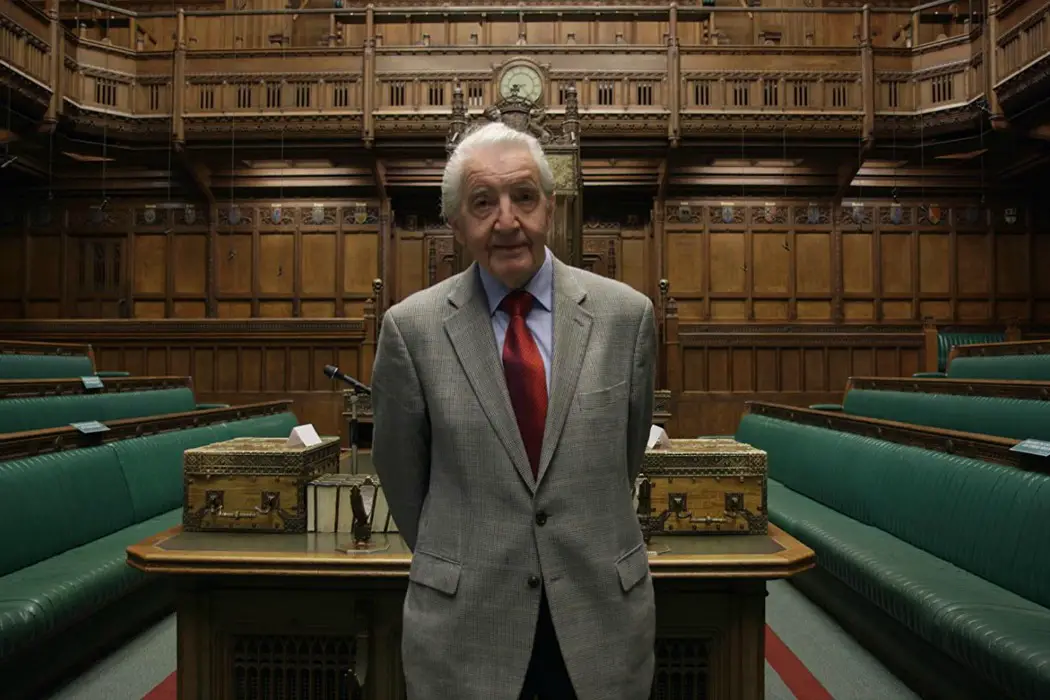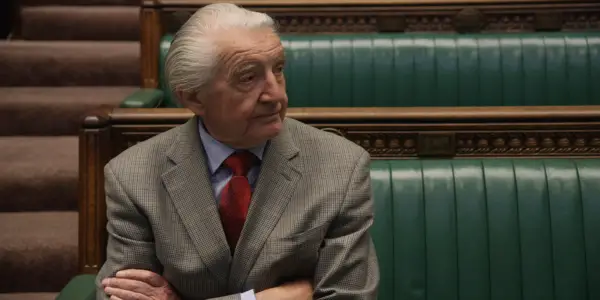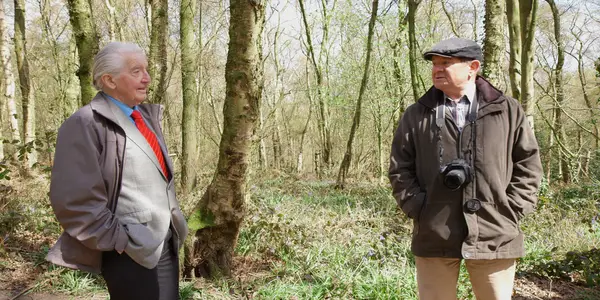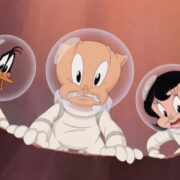DENNIS SKINNER: NATURE OF THE BEAST: A Timely Reminder To Keep Fighting

Becky spends her days working in TV and she spends…
Dennis Skinner is a remarkable man. Though an MP for almost forty years and a true representative for the working class of the North, he is probably best known to the young people of Britain as the man who called David Cameron ‘dodgy Dave’, and refused to apologise. This comment, directed at the Prime Minister during PMQ’s, is entirely fitting with Skinner’s history of brutal honesty and readiness to challenge Westminster traditions. He has often been suspended from the House of Commons for making remarks – on no less than ten occasions in his longstanding career.
It’s in Dennis Skinner: Nature of the Beast, though, where he reveals that his proudest moments are when he meets a constituent and they tell him that they were thinking the exact same thing. He feels it means he knows his constituents and shows them that he hasn’t changed. He is, of course, completely right. Director Daniel Draper‘s first feature, Nature of the Beast shows us that not all politicians are the same. Or perhaps that should read ‘not all politicians are Dennis Skinner’.
From Humble Beginnings…
Dennis Skinner: Nature of the Beast begins (as any good biography should) at the beginning. Dennis Skinner was born and raised in Clay Cross, Derbyshire. Son of a miner, Nature of the Beast explores how Skinner grew up in a house that was awash with political debate. His plan to go into politics was supposed to be a short lived fling and (on his own admission) ‘just to get the Tories out’. A popular and respected figure in the community, Skinner was eventually convinced to run for the local council, which then led to his being elected as MP for Bolsover in 1970, and he has remained in the position ever since.
Mixing interviews with Skinner himself, his family and his constituents, with archive footage of Skinner’s younger years gives us a good picture of the real Dennis Skinner was, and is today.
Dennis Skinner: Nature of the Beast effortlessly guides the audience through the 1970’s, to the Thatcher era – never once patronising or saturating the viewers with information. There is a sense that, even if you knew nothing of British history or politics of the time, you would be able to learn and enjoy regardless. It’s informative, but not pushy. Fundamentally, it is an accessible documentary – which is quite an achievement considering the subject matter. The British political system is a hard one to get one’s head around, but Nature of the Beast gives us a likeable figure in the form of Skinner to help guide us through.

This likeability (and relatability) is what gives Dennis Skinner: Nature of the Beast an edge over other political biographies. It’s not often that we find our leaders to be compassionate, joyful people, but Dennis Skinner is both.
As the film delves into Skinner’s childhood and passions, a diverse soundtrack accompanies. There are moments of quiet as are invited to listen to Skinner’s childhood music and are even treated to Skinner singing himself. It connects us with him as a person, rather than just as a political whirlwind. Later on, this humanity and compassion seeps through when Skinner takes us through the turmoil of the miners strikes, the disbanding of the unions in the 1980’s and right up to the austerity of recent years. The familiar songs, chants and lyrics help to keep a sense of unity within the film throughout.
Biography or Political Manifesto?
Some of the interviews, however endearing, do feel slightly out of place. Skinner has clearly had a rich and fulfilling life and possibly Dennis Skinner: Nature of the Beast’s biggest flaw is trying to discuss each and every one of them. What begins as a focused biography of one man’s life in politics becomes a little blurry towards the end. There is so much of Skinner’s life which is interesting and relevant to today’s politics, and Nature of the Beast would have done well to focus more on that than perhaps other, less absorbing aspects. As pleasant as Skinner’s love of nature is to hear about, it felt like part of a different film.

About halfway through the film, title cards flash up explaining the meanings of capitalism and socialism. Though informative, they could perhaps have been better at the beginning of the film, setting up Skinner as an advocate of socialism from the very beginning. For now, Dennis Skinner: Nature of the Beast feels like a film of two parts; the first being a touching personal biography of the son of a coal miner, the second being a historic look at the political turmoil of the 1970/80s. The two are equally fascinating, but they don’t marry together all that well onscreen.
Despite this, Nature of the Beast is littered with delightful little moments throughout. A personal favourite; the explanation of why he arrives at work a little after 8am everyday (he goes via the post office so he can read his constituents mail before the day starts). Skinner’s bold and memorable statements (“once you start climbing that greasy pole in the ‘palace of varieties’, its a different system”) only strengthen his character, in addition to his funny on-camera quirks.
DENNIS SKINNER: NATURE OF THE BEAST: A Film for Now
Though Dennis Skinner: Nature of the Beast isn’t perfect, it’s definitely the right time for it. The UK is more divided than it has ever been and we need to be reminded that there are people in the Government who truly care about the working people – few though they may be. It’s uplifting, and inspiring, to watch a documentary about a politician which fills you with hope rather than dread. That’s what Nature of the Beast gives us – hope. I think we could all do with a little more of that.
What’s your favourite political biographical film? How do you think it compares to Nature of the Beast? Let us know
Dennis Skinner: Nature of the Beast is in limited UK cinemas – details of screenings can be found here.
Does content like this matter to you?
Become a Member and support film journalism. Unlock access to all of Film Inquiry`s great articles. Join a community of like-minded readers who are passionate about cinema - get access to our private members Network, give back to independent filmmakers, and more.
Becky spends her days working in TV and she spends every other minute writing about cinema, TV & feminism. Based in London, she also likes drinking gin, re-watching 'The X Files' and writing about on-screen representation and all manner of things over at femphile.com












